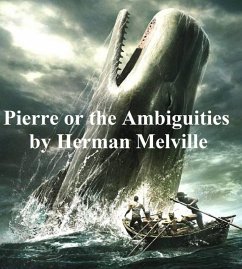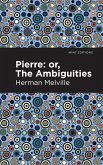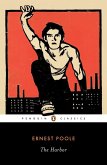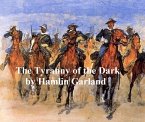According to Wikipedia: "Pierre: or, The Ambiguities is a novel written by Herman Melville, and published in 1852 by Harper & Brothers. It is the only novel by Melville that takes place on land in the United States. The publication of Pierre was a critical and financial disaster for Melville. It was universally condemned for both its morals and its style. With the exception of Israel Potter, he never published another conventional novel, although he subsequently wrote and published many exceptional stories, including Bartleby the Scrivener and Benito Cereno, and the experimental "masque" The Confidence-Man... The novel Pierre might be described as a parody of Gothic melodrama, and it includes many elements and themes found in contemporary popular fiction. Its emotions and gestures are exaggerated, and its language is particularly dense and opaque, even for Melville. Moreover, its suggestions that virtue and vice, good and evil, are at times indistinguishable and that "young America" might harbor some deadly inherited sin leading to murderous retribution were extremely unpalatable to a contemporary audience. It was suggested, even within his family, that Melville had gone somewhat mad. This opinion was held by most critics, even during the revival of interest in the 1920s, and some critics since have concurred that the book was a mistake. Nonetheless, the work contains some of Melville's most concentrated and accomplished writing, and it is his most direct treatment of the literary life and the process of literary creation.
Dieser Download kann aus rechtlichen Gründen nur mit Rechnungsadresse in A, B, BG, CY, CZ, D, DK, EW, E, FIN, F, GR, H, IRL, I, LT, L, LR, M, NL, PL, P, R, S, SLO, SK ausgeliefert werden.









